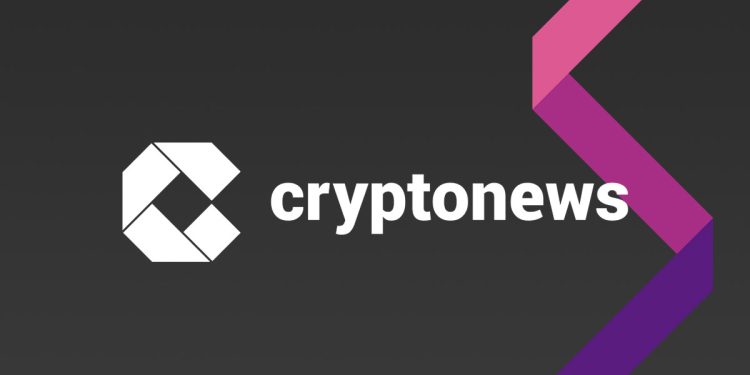Crypto trading firm GSR has filed with the U.S. Securities and Exchange Commission (SEC) to launch its first exchange-traded fund (ETF), betting that Wall Street’s appetite for corporate crypto treasuries remains strong despite a bruising year for the sector.
The proposed GSR Digital Asset Treasury Companies ETF would track public firms that hold cryptocurrencies such as Bitcoin, Ether, and other altcoins on their balance sheets, such as Strategy Inc. (MSTR), Upexi, Inc. (UPXI), DeFi Development Corp. (DFDV), CEA Industries Inc. (BNC), SharpLink Gaming, Inc. (SBET), Bitmine Immersion Technologies, Inc. (BMNR), SUI Group Holdings Limited (SUIG), and so on.
The timing is striking. Corporate treasuries holding crypto have ballooned to record levels in 2025, with over $1 trillion worth of tokens sitting on balance sheets. Yet valuations for many of those firms have slipped below the value of their reserves, forcing some to turn to debt-funded buybacks and restructuring.
Critics argue the model is becoming saturated and increasingly risky, especially as smaller players experiment with altcoin-heavy reserves to differentiate themselves.
If approved, GSR’s fund would join a growing crop of Wall Street vehicles designed to package crypto exposure for traditional markets; however, its success may hinge on whether investors view corporate treasuries as a safe innovation or a fragile experiment under stress.
GSR Unveils Crypto Treasury ETF With Flexible Holdings and PIPE Exposure
The GSR Digital Asset Treasury Companies ETF, in which at least 80% of the fund’s holdings would consist of equities in these so-called “digital asset treasury companies” (DATs), expects to hold 10–15 positions across 5 to 10 issuers, primarily companies listed on U.S. exchanges. GSR noted this number may expand as the market evolves.
The filing also allows the fund to participate in private investments in public equity (PIPEs), subject to a 15% illiquidity limit under the Investment Company Act of 1940. PIPEs let institutional investors buy discounted shares directly from public companies, offering issuers faster capital access but often with resale restrictions and lower liquidity.
Cash raised from portfolio sales may be reinvested in other treasury companies or short-term U.S. government securities. Importantly, GSR emphasized that the ETF is not designed to track crypto prices directly, and its performance may diverge from that of the underlying assets.
Notably, the crypto treasury ETF is one of five products GSR has proposed. GSR is also targeting the fast-growing staking market with three separate funds:
Ethereum Staking Opportunity ETF and Ethereum YieldEdge ETF, both structured under the restrictive Investment Company Act of 1940, will use offshore subsidiaries to stake ETH and potentially buy overseas ETH staking ETFs. The YieldEdge fund adds a derivatives-based yield strategy on top. Crypto StakingMax ETF, also a 40 Act fund, will focus broadly on proof-of-stake tokens and staking strategies.Rounding out the filing is the GSR Crypto Core3 ETF, structured under the more flexible Securities Act of 1933, which would hold Bitcoin, Ether, and Solana directly, maintaining roughly one-third allocations to each. This puts it in the same regulatory bucket as the now-popular spot Bitcoin and Ether ETFs launched last year.
Crypto Treasury Firms Turn to Debt-Fueled Buybacks as Investor Doubts Mount
While GSR is preparing to launch ETFs tied to crypto treasury firms, the move comes at a moment when those very firms are facing a downturn.
Public companies that once loaded their balance sheets with Bitcoin and Ether are now grappling with market values that have sunk below the worth of the tokens they hold.
In response, many are turning to aggressive share buybacks, often funded by debt, in a bid to prop up falling stock prices.
At least seven firms, from gaming outfits to biotech rebrands, have recently announced repurchase programs. ETHZilla, formerly 180 Life Sciences, borrowed $80 million from Cumberland DRW to finance a $250 million buyback after its shares plunged 76% from an August peak.
“They’re borrowing money to buy time, not tokens,” said Adam Morgan McCarthy, senior analyst at Kaiko.
Critics argue that borrowing to fund buybacks undermines the thesis that digital asset appreciation alone would elevate stock value. Still, conviction has not disappeared entirely, as corporations have acquired more Bitcoin this year than U.S. spot ETFs combined, and retail investors continue to absorb liquidity when institutions step back.
But as the NAV gap widens and debt-fueled repurchases multiply, the sustainability of the crypto treasury experiment is facing its most serious test yet.
At the same time, momentum in the ETF market is accelerating. In recent months, issuers have filed for a wave of products tied to altcoins, token bundles, and staking strategies.
As of late August, the SEC was weighing more than 90 crypto ETF applications, according to Bloomberg research. Their odds of approval improved after the regulator adopted new listing standards for commodity-based trusts, streamlining the process.
Just last week, Grayscale’s Digital Large Cap Fund (GDLC), which tracks XRP, Solana, Cardano, Bitcoin, and Ethereum, along with the Rex-Osprey DOGE ETF (DOJE), began trading after winning SEC approval.
That same day, Tidal Financial Group applied for a leveraged AltSeason ETF excluding Bitcoin and Ethereum, signaling how quickly the next wave of crypto investment vehicles is coming to market.
Their prospects improved last week after the regulator approved new generic listing standards for commodity-based trusts, streamlining the approval process. Hashdex’s Nasdaq Crypto Index US ETF became the first to move forward under the SEC’s new generic listing rules.
The post GSR Seeks ETF Backed by Crypto Treasury Firms in Bold Wall Street Bid — What to Expect? appeared first on Cryptonews.













